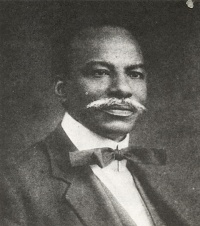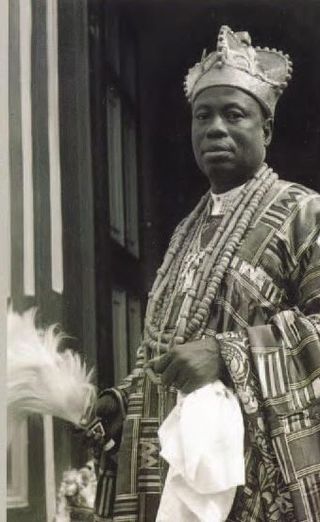Related Research Articles

The Judicial Committee of the Privy Council (JCPC) is the highest court of appeal for the Crown Dependencies, the British Overseas Territories, some Commonwealth countries and a few institutions in the United Kingdom. Established on 14 August 1833 to hear appeals formerly heard by the King-in-Council, the Privy Council formerly acted as the court of last resort for the entire British Empire, other than for the United Kingdom itself.

Mabo v Queensland is a landmark decision of the High Court of Australia that recognised the existence of Native Title in Australia. It was brought by Eddie Mabo and others against the State of Queensland, and decided on 3 June 1992. The case is notable for being the first in Australia to recognise pre-colonial land interests of Indigenous Australians within the common law of Australia.
Canadian federalism involves the current nature and historical development of the federal system in Canada.

Terra nullius is a Latin expression meaning "nobody's land". Since the nineteenth century it has occasionally been used in international law as a principle to justify claims that territory may be acquired by a state's occupation of it. There are currently three territories sometimes claimed to be terra nullius: Bir Tawil, four pockets of land near the Danube due to the Croatia–Serbia border dispute, and parts of Antarctica, principally Marie Byrd Land.

The High Court of Australia is the apex court of the Australian legal system. It exercises original and appellate jurisdiction on matters specified in the Constitution of Australia and supplementary legislation.
Native title is the set of rights, recognised by Australian law, held by Aboriginal and Torres Strait Islander groups or individuals to land that derive from their maintenance of their traditional laws and customs. These Aboriginal title rights were first recognised as a part of Australian common law with the decision of Mabo v Queensland in 1992. The doctrine was subsequently implemented and modified via statute with the Native Title Act 1993.
Pith and substance is a legal doctrine in Canadian constitutional interpretation used to determine under which head of power a given piece of legislation falls. The doctrine is primarily used when a law is challenged on the basis that one level of government has encroached upon the exclusive jurisdiction of another level of government.

Olayinka Herbert Samuel Heelas Badmus Macaulay was a Nigerian nationalist, politician, surveyor, engineer, architect, journalist, and musician. Macaulay is considered by many as founder of Nigerian nationalism.

St Catharines Milling and Lumber Co v R was the leading case on Aboriginal title in Canada for more than 80 years. The Judicial Committee of the Privy Council, affirming a ruling by the Supreme Court of Canada, held that Aboriginal title over land was allowed only at the Crown's pleasure and could be taken away at any time. The case, involving Ojibway Treaty No. 3, which had never been previously litigated before any court, is a leading decision in Canada on the differences between the division of legislative powers and property rights under the Constitution of Canada.
Indigenous land rights are the rights of Indigenous peoples to land and natural resources therein, either individually or collectively, mostly in colonised countries. Land and resource-related rights are of fundamental importance to Indigenous peoples for a range of reasons, including: the religious significance of the land, self-determination, identity, and economic factors. Land is a major economic asset, and in some Indigenous societies, using natural resources of earth and sea form the basis of their household economy, so the demand for ownership derives from the need to ensure their access to these resources. Land can also be an important instrument of inheritance or a symbol of social status. In many Indigenous societies, such as among the many Aboriginal Australian peoples, the land is an essential part of their spirituality and belief systems.

Milirrpum v Nabalco Pty Ltd, also known as the Gove land rights case because its subject was land known as the Gove Peninsula in the Northern Territory, was the first litigation on native title in Australia, and the first significant legal case for Aboriginal land rights in Australia, decided on 27 April 1971.
The discovery doctrine, or doctrine of discovery, is a disputed interpretation of international law during the Age of Discovery, introduced into United States municipal law by the US Supreme Court Justice John Marshall in Johnson v. McIntosh (1823). In Marshall's formulation of the doctrine, discovery of territory previously unknown to Europeans gave the discovering nation title to that territory against all other European nations, and this title could be perfected by possession. A number of legal scholars have criticized Marshall's interpretation of the relevant international law. In recent decades, advocates for Indigenous rights have campaigned against the doctrine. In 2023, the Roman Curia of the Vatican formally repudiated the doctrine.

Aboriginal title is a common law doctrine that the land rights of indigenous peoples to customary tenure persist after the assumption of sovereignty to that land by another colonising state. The requirements of proof for the recognition of aboriginal title, the content of aboriginal title, the methods of extinguishing aboriginal title, and the availability of compensation in the case of extinguishment vary significantly by jurisdiction. Nearly all jurisdictions are in agreement that aboriginal title is inalienable, and that it may be held either individually or collectively.

The Allied Tribes of British Columbia (ATBC) was an Indigenous rights organization formed following the First World War. There were 16 tribal groups involved, all focused on the issues of land claims and aboriginal title in British Columbia.
Radical title is a concept in English common law that refers to the Crown's underlying title to all land held in overseas plantations and colonies. It grants the Crown the power to alienate others from land and to transfer beneficial ownership of the land to itself or others, but by itself does not grant beneficial ownership.
Ibikunle Alfred Akitoye (1871–1928) was Oba of Lagos from 1925 to 1928 during what some historians refer to as the "Interregnum" years of the exiled Oba Eshugbayi Eleko. Ibikunle Akitoye was the first western educated and Christian Oba of Lagos. Akitoye's reign also marked the association of Lagos Obas with non-traditional religions.
Oba Eshugbayi Eleko, alias "Eleko of Eko", was the Oba of Lagos from 1901 to 1925, and from 1931 to 1932. His father was Oba Dosunmu. Eleko's struggles and legal victory over the British colonial government symbolized the struggle between indigenous rights and colonial rule in Nigeria. The outcome of the "Eleko Affair" led to the Eleko's deposition as Oba and deportation to Oyo between 1925 and 1931, years that some historians now call the "interregnum years", and that saw the reigns of Oba Ibikunle Akitoye and Oba Sanusi Olusi.

Oba Sir Musendiku Buraimoh Adeniji Adele II, KBE was the Oba (King) of Lagos from 1 October 1949 to 12 July 1964.
Bonny Ibhawoh is the Senator William McMaster Chair in Global Human Rights, Fellow of the Royal Society of Canada, Expert-Rapporteur, United Nations Expert Mechanism on the Right to Development, UN-OHCHR and Founding Director, Centre for Human Rights and Restorative Justice
Chief Amodu Tijani Oluwa, also known as simply Amodu Tijani, was a Nigerian Yoruba traditional chief. Coming to prominence in the high colonial period, he was a notable nationalist. He held the title of the Oluwa of Lagos.
References
- ↑ Ibhawoh 2013, pp. 128–129.
- 1 2 3 Elias 1951, pp. 50–51.
- 1 2 3 Ibhawoh 2013, p. 129.
- ↑ Amodu Tijani v Secretary, Southern Provinces (1915) 3 NLR 24; (1918) 3 NLR 35.
- 1 2 Park 1964, p. 38.
- ↑ Ibhawoh 2013, p. 130.
- ↑ Alexandrowicz, Charles Henry (1973). The European-African Confrontation: A Study in Treaty Making. Sijthoff. p. 103. OCLC 1149020078.
- ↑ Park 1964, pp. 42, 45–46.
- ↑ McNeil, Kent (1989). Common Law Aboriginal Title. Oxford University Press. pp. 171–172. ISBN 0-19-825223-4. OCLC 18134954.
- ↑ Silverstein 2007, p. 68.